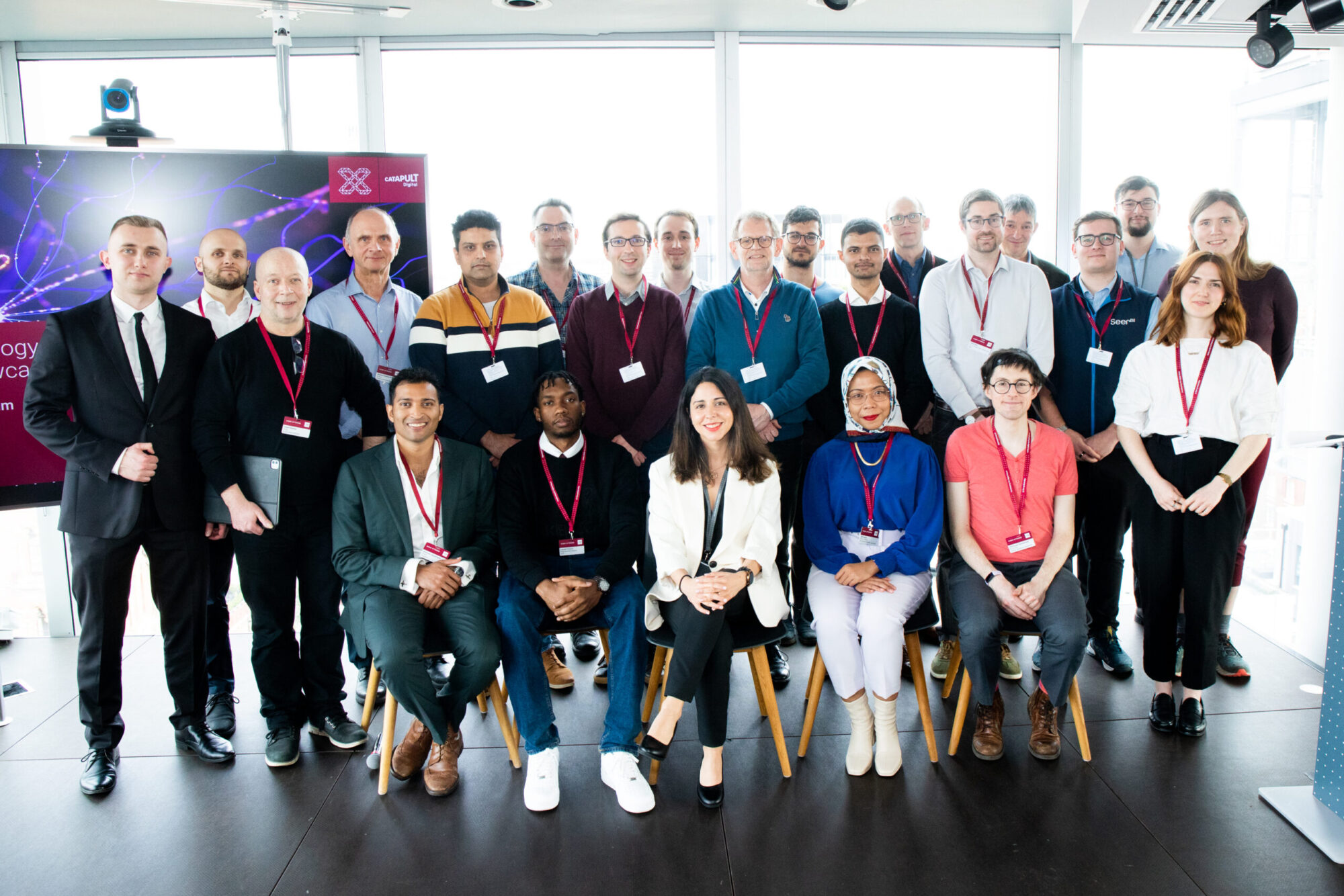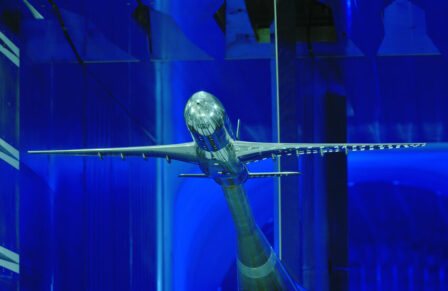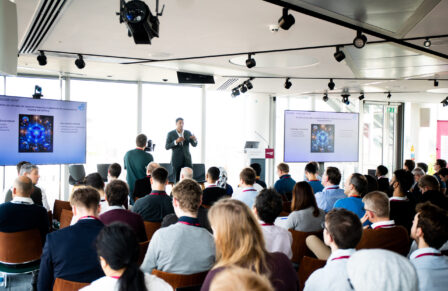Leading businesses showcase the potential for quantum computers to transform energy, infrastructure and engineering
Posted 20 Feb 2024
Leading businesses showcase the potential for quantum computers to transform energy, infrastructure and engineering
Digital Catapult, the UK authority on advanced digital technology, is supporting eleven organisations across the UK to investigate how quantum computing could benefit key industrial sectors, such as energy, infrastructure, and engineering. The Quantum Technology Access Programme (QTAP) assists companies in trialling novel use cases, to demonstrate the potential for quantum technology to transform critical parts of the UK economy. The programme results will soon be shared with broader industry to promote a deeper understanding of quantum’s commercial applications.
Marking a paradigm shift for the participants, the programme’s focus extends beyond theoretical understandings of quantum technology, to successfully investigate illustrations of real-world business applications for leading corporations including Arup, Airbus and the Port of Dover. These industrial applications range from Frazer Nash demonstrating the potential of quantum computers to optimise the UK energy grid to meet demand for electricity, to Tees-Valley-based SeerBI building a quantum machine learning model to predict shipments that were at risk of late arrival.
Rolls-Royce aims to build small, autonomous nuclear reactors that could operate safely in remote mining colonies, the moon and on Mars. During the programme, the company used data from the Fukushima nuclear event to investigate the feasibility of a quantum machine learning model to quickly identify potentially hazardous situations; enabling the reactor to operate safely and be shut down if necessary, with minimum human involvement.
Delivered in partnership with Riverlane and ORCA Computing, QTAP provides participating companies with access to the ORCA PT-1 quantum photonic computer, a team of quantum experts and ongoing technical support, establishing a first-of-its-kind commercially neutral ecosystem for businesses interested in quantum technology. Paving the way for ongoing industrial collaboration and knowledge-sharing between the participating companies, Digital Catapult’s programme exemplifies the value of a community committed to exploring industrial applications of quantum, as the technology evolves.
Digital Catapult and partners supported triaging and framing relevant use cases, delivering education and training on theoretical and practical aspects of quantum computing and providing ongoing technological assistance, as well as enabling opportunities for knowledge sharing between participants. This has increased the quantum readiness of leading UK companies and SMEs, such as Oxford Sigma, Neptune New Space and UKAEA, empowering them to embrace quantum technology, as new use cases emerge and capabilities increase.
The programme has three streams: two on optimisation and quantum machine learning with ORCA Computing, involving simulating and running small-scale industrial challenges on the ORCA PT-1 quantum computer. The fault-tolerant stream, delivered with Riverlane, investigates the Quantum Singular Value Transformation, an algorithm that will run on the large, fault-tolerant quantum computers available in the future.
During a demonstration day, participating companies including DNV Services UK Ltd, and Bahut tested their challenge on the ORCA PT-1 quantum computer, as part of the optimisation stream. The quantum computer successfully solved industrial problems, demonstrating the potential to solve more complex and sophisticated challenges in the future.
The remarkable success achieved on QTAP underscores the increasing interest in quantum computing within industry. From its inception to the showcase, participating companies have consistently shown commitment to enhancing their understanding of quantum technology. At Digital Catapult, our mission is to demonstrate the value of embracing quantum-enabled solutions, and this programme will undoubtedly sharpen participating companies’ competitive edge, as quantum computers evolve and present substantial commercial opportunity.
Katy Ho Director of Innovation Practice at Digital Catapult
The Novel Nuclear team at Rolls-Royce is very future focussed, seeking to develop revolutionary new technologies and explore energy efficient applications for nuclear power on Earth and in Space. Quantum technologies, including quantum computing, will be an enabler for this over the next 15 years. It’s important that we develop an understanding of how and when we can adopt this technology.
The Digital Catapult Quantum Technology Access Programme has been a timely boost to this effort, and I’m delighted that Chris completed the programme, including using an actual quantum computer for a machine learning test case relevant to the nuclear industry.
Jonathon Adams Assistant Chief Engineer at Rolls-Royce
The results of the QTAP programme have been impressive. Participating companies have showcased exceptional dedication and commitment to exploring use cases that not only enable them to explore the potential of quantum computing technology for their businesses but also help drive progress in key sectors. For ORCA, partnering with Digital Catapult, industry experts and leading UK companies in the programme has enabled us to understand how near-term quantum devices can enhance a wide range of business use cases across different industries.
Richard Murray, PhD Co-founder, and CEO of ORCA Computing
The QTAP programme has proved invaluable for our team so far, we have been able to pick up new skills and interact with technology which at the start of the programme we didn’t even know existed. Applying this technology to our problem area of logistics and on time delivery classification using quantum binary classification opened our eyes to a different way of looking at problems, we would like to give out thanks to the digital catapult team for their support and Orca Computing for access to their systems and SDK throughout the programme.
Owain Brennan CEO of SeerBI









